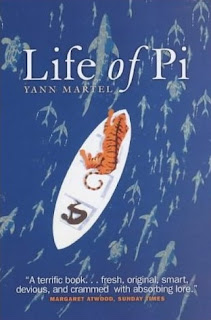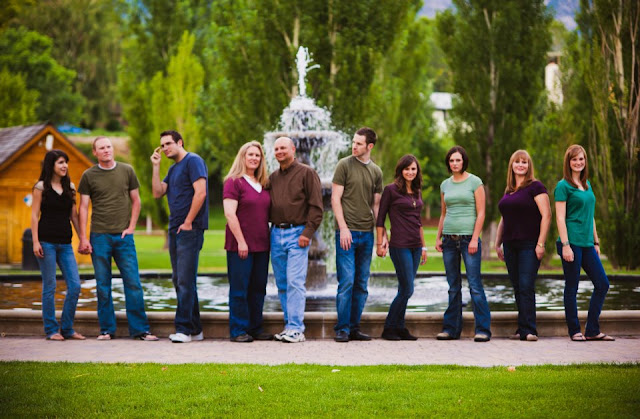 |
| Rowling's first book for adults |
Reviewed by Connie
*I received a complimentary review copy of this book in exchange for an honest review
Published: 2012
It's about: (taken from GoodReads) "When Barry Fairbrother dies in his early forties, the town of Pagford is left in shock. Pagford is, seemingly, an English idyll, with a cobbled market square and an ancient abbey, but what lies behind the pretty façade is a town at war. Rich at war with poor, teenagers at war with their parents, wives at war with their husbands, teachers at war with their pupils...Pagford is not what it first seems. And the empty seat left by Barry on the parish council soon becomes the catalyst for the biggest war the town has yet seen. Who will triumph in an election fraught with passion, duplicity and unexpected revelations?"
I thought: This book, Rowling's first since the final Harry Potter was published in 2007, has been received thus far with mixed reviews, which I wish to address before offering my opinion of the book.
Many of the negative reviews I have read have thus far have been from Harry Potter fans disappointed that this book is nothing like Harry Potter. Well, guess what, JK Rowling never intended this book to be anything like Harry Potter. Other reviewers have said that the adult content in the book is Rowling's awkward attempt to push as far away from Potter as possible, as though she has something to prove. This, also, is unfair, as it assumes that the more optimistic, kid-friendly, clean style of Harry Potter is the only writing style that comes instinctively to Rowling, and anything else is forced, a sort of teenage rebellion against her "goody goody" Harry Potter days.

Few readers seem to be considering the possibility that maybe, just maybe, Ms. Rowling has more to say about the world than she said in Harry Potter. That she does not go around seeing things exclusively through Dumbledore's half-moon spectacles, interpreting everything she encounters in terms of herbology and wands and dementors. The Casual Vacancy certainly takes a different (and undeniably bleaker) perspective on life, but it should not be written off as inauthentic simply because it differs so greatly from the tone of her previous works.
Now, one comment I will make, which will be the only Potter-Vacancy connection I point out, is that I love the way Rowling rotates the narrative perspective from one character to another throughout this book. She did this at times in Potter (when she wrote from the perspective of Frank, the gardener, or the Muggle Prime Minister), and I always thoroughly enjoyed those bits. She demonstrated a knack for the style in those brief glimpses in Potter, and now, having written an entire 500-page book exclusively in that fashion, her superior talent truly shines.
Rowling has said that this format is her attempt to modernize nineteenth century novels that center in a small town or village. This much is clear. The Casual Vacancy certainly follows in the vein of George Eliot's Middlemarch or any one of Thomas Hardy's novels, and she does the genre justice.
The characters of Pagford are varied, real, and flawed. Though very few of them are actually likable, Rowling writes them with insight, demonstrating an intuitive understanding of people's thought patterns and justifications for their actions. It is truly refreshing, as so many of us are confined to think only as we think without ever successfully putting ourselves in the places of those around us.
The irony of the book, and ultimately what makes it so powerful, is that while Rowling successfully writes from the perspectives of so many characters, thus following the advice to "walk a mile in someone's shoes," none of the characters she writes is ever capable of doing the same.
To me, this is the dominant theme of the book -- the tragedy of missed opportunity. So many times throughout the novel, characters have an opportunity to help or reach out to or really communicate with another character, and pretty much every time, they don't engage. Each character is a megalomaniac of sorts, so tied up with the universe that centers around himself, that no one is able to form any real human connections. That's why Barry Fairbrother's death leaves such a gaping hole in the town of Pagford; he seems to have been the only one capable of doing that.
Though the book is certainly bleak, it ultimately is a book of great compassion. The Casual Vacancy is a book of believable characters, expert writing, and plenty of Rowling's cheeky humor to mix things up.
Verdict: Stick it on the shelf
Reading Recommendations: It would not be accurate to suggest that if you loved Harry Potter, you'll love The Casual Vacancy. I'd say a more appropriate recommendation would be if you like the novels of Ian McEwan (Atonement, Saturday), you will probably enjoy The Casual Vacancy.
Warnings: strong language, sexual content, drug use, rape
Favorite excerpts:
"Krystal's slow passage up the school had resembled the passage of a goat through the body of a boa constrictor, being highly visible and uncomfortable for both parties concerned."
"It was so good to be held. If only their relationship could be distilled into simple, wordless gestures of comfort. Why had humans ever learned to talk?"
"Ever since Barry's funeral, Gavin had dwelled, with a sense of deep inadequacy, on the comparatively small gap that he was sure he would leave behind in his community, should he die. Looking at Mary, he wondered whether it would not be better to leave a huge hole in one person's heart."
"What was love, after all? Thought Parminder, as a gentle breeze ruffled the tall hedge of Leyland cypresses that enclosed the Jawandas' backyard. Was it love when somebody filled a space in your life that yawned inside you, once they had gone?"
What I'm reading next: The Mask of Motherhood by Susan Maushart






















































